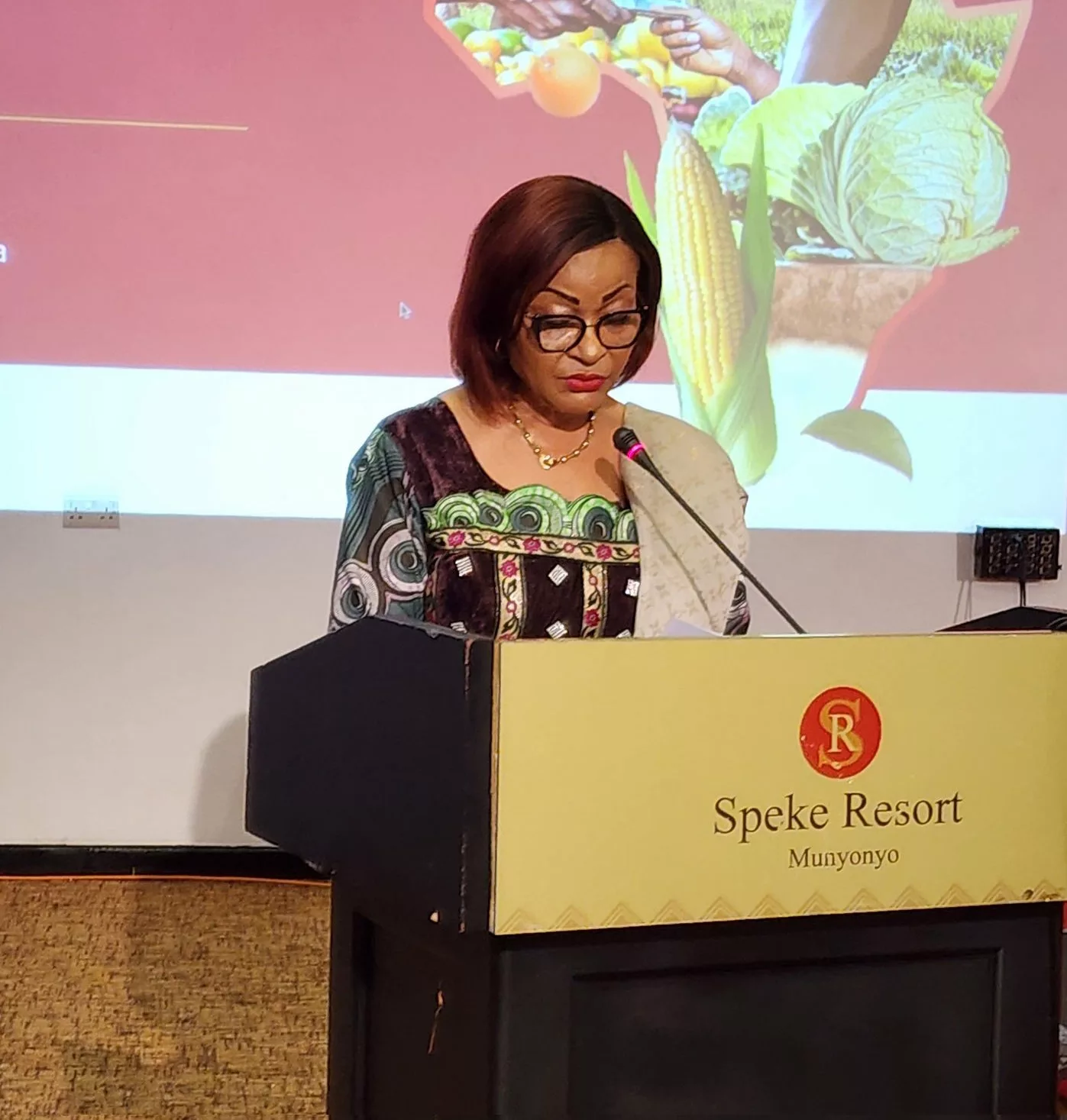|
Getting your Trinity Audio player ready...
|
The post-Malabo Comprehensive Africa Agriculture Development Programme (CAADP) agenda is premised on the need to tackle persistent challenges, unfinished business in achieving the Malabo declaration targets, adapting to the changing global context, aligning with Agenda 2063, and leveraging new opportunities for agricultural transformation and inclusive growth.
This has been the overarching theme at the Post-Malabo Validation Workshop of the Ten-Year Strategy and Action Plan (2026-2035) for the Comprehensive Africa Agriculture Development Programme (CAADP) Post-Malabo Agenda running from 21-23 August 2024 in Kampala, Uganda.
H.E. Amb. Josefa Sacko, African Union Commission (AUC)’s Commissioner for Agriculture, Rural Development, Blue Economy and Sustainable Environment is the key dignitary at the workshop while Hon. Frank Tumwebaze, Uganda’s Minister of Agriculture, Animal Industry and Fisheries, Republic of Uganda and Chair of the AU STC on Agriculture, Rural Development, Water, and Environment officially launched the workshop.
Launched in 2003, the Comprehensive Africa Agriculture Development Programme (CAADP) has been a key driver of agricultural transformation across Africa. The main objective of CAADP is to increase food security and nutrition, reduce rural poverty, create employment, and contribute toward economic development while protecting the environment. It aims for a 6% annual growth rate in the sector, with African Union member states committing at least 10% of their budgets to agriculture. The program’s initial decade (2003-2013) highlighted both successes and challenges.
Successes under the CAADP program included 45 AU member states signing CAADP Compacts and initiating CAADP-compliant National Agricultural Investment Plans (NAIPs). Investment plans were completed for 31 countries, and four regional plans were finalized. However, challenges such as national and regional policy burdens, resource constraints, and a lack of cross-sectoral cooperation hampered progress. Building on the successes of the Maputo Declaration, the 2014 Malabo CAADP Declaration recommitted to CAADP and set ambitious goals for 2025, including eradicating hunger, reducing malnutrition, and tripling intra-African trade. The Malabo Declaration emphasized accountability through Biennial Reviews and recognized the importance of related sectors like infrastructure and rural development.
“While Malabo CAADP focuses on agriculture, livestock, forestry, and fisheries, it acknowledges the crucial role of infrastructure, trade, and other sectors in agricultural growth. Its main objectives are to revitalize agricultural growth, ensure food security, and promote rural development. Recent crises like COVID-19, conflicts, and the Russia- Ukraine conflict, which began in early February 2022, have had a devastating impact on Africa’s agriculture, highlighting the need for a new agenda beyond 2025 amidst climate change,” said Manyewu Mutamba, the African Union Development Agency (AUDA-NEPAD)’s Senior Programme Officer, Food Security.
During the Thirty-Seventh Ordinary Session of the Assembly of the African Union in February 2024, the Heads of State and Government acknowledged the achievements of the Comprehensive Africa Agriculture Development Program (CAADP) but expressed concern that the continent is not on track to meet CAADP’s goals by 2025.
Despite progress, the ambitions set by the Maputo and Malabo agendas remain unmet due to challenges such as climate change, economic downturns, the COVID-19 pandemic, and the 2022 Russia-Ukraine conflict. The Member States called for the development of a post-Malabo CAADP agenda to address sustainable food systems and emerging issues and decided to hold an Extraordinary Summit in 2025 in Kampala, Uganda to consider the post-Malabo CAADP agenda
Addressing delegates yesterday, Edwin Odhiambo, Program and Policy Director, DAI Policy LINK, said Effective communication of CAADP data and agri-food system information can promote a more inclusive, transparent, and effective economic growth and transformation of Africa’s agricultural sector over the next decade.
Augustin Wambo Yamdjeu, Director, Knowledge Systems, AKADEMIYA2063 said adequate and sustainable financing is essential for the successful implementation of CAADP.
“Diversifying funding sources, optimizing resource allocation, and leveraging public-private partnerships are key to ensuring the financial sustainability of agricultural initiatives. Underfunding and unreliable budget allocation hinder the implementation of the Post-Malabo Agenda. There is a need to develop and operationalize effective regional funding mechanisms as well as strategic partnerships and build the capacity of key national organizations and the private sector to mobilize resources,” Yamdjeu said.
Panduleni Elago, Senior CAADP Advisor reiterated the need to leverage agri-food systems to enhance human nutrition and health outcomes. She said this priority underscores the necessity of ensuring food security and equitable access to nutritious and safe foods.
“There is a need to ensure that food security and nutrition policies and programs are improved or implemented. Stakeholders should work to ensure that traditional/indigenous nutritious foods and value chains are promoted. Food safety policies, programs, and regulations should be implemented and enforced; and food safety infrastructure and capacities developed,” Elago said.






